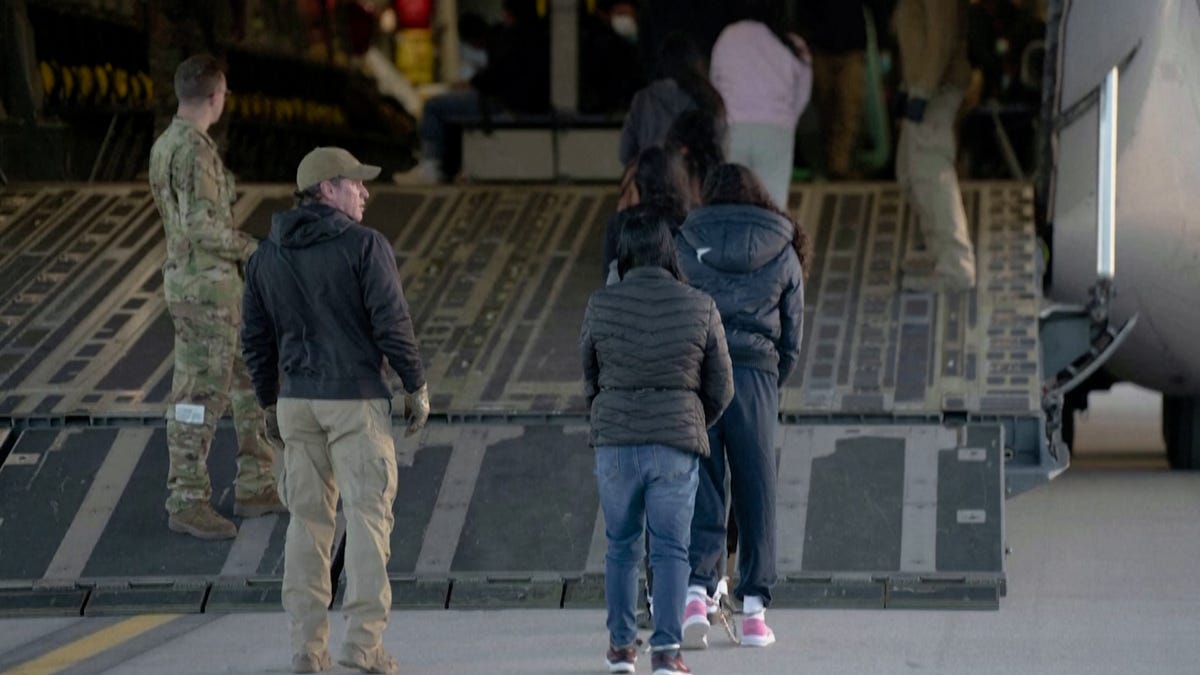The planeload of men, all convicted of serious crimes, was stopped en route to the war-torn African nation
Judge blocks migrant deportation flights to Libya
A district judge said any migrant deportation flights to Libya would violate a prior court order.
A federal district judge said the Trump administration violated his court order by removing eight migrants to South Sudan without giving them an opportunity to object.
The men, who have all been convicted of serious crimes, were put on a plane May 20 headed for the war-torn African nation of South Sudan. The plane has landed, Justice Department lawyer Elianis Perez told the court, but would not say where, citing security concerns.
South Sudan has since agreed to send the men to their home countries, according to Federal District Judge Brian Murphy.
Five are convicted murderers and two had sexual offense convictions, the government said. ICE took custody of the men, in most cases, earlier this month.
Government officials chastized the court for requiring the men to remain in U.S. custody.
“A local judge in Massachusetts is trying to force the United States to bring back these uniquely barbaric monsters who are a clear and present threat to the safety of the American people and American victims,” Tricia McLaughlin, assistant secretary for public affairs at DHS, said in a briefing before the May 21 court hearing.
Did the administration violate a court order?
Just one of the men, Dian Peter Domach, is from South Sudan. The rest were from Cuba, Mexico, Laos, Myanmar or Vietnam.
In a ruling in late April, federal judge Brian Murphy forbade the government from sending any migrants to third countries without providing them clear information about where they were going and giving them time to raise any concerns about being sent to that country.
Government lawyers said they believed the men had an opportunity.
“These individuals have gone through removal proceedings,” Perez said. “They have had opportunity to express fears.”
Lawyers for the men had said by the time they received via email and removal documents for their clients, the men were already headed to South Sudan.
“It was impossible for these people to have a meaningful opportunity to object to their transfer to South Sudan,” Murphy said.
He said the government “unquestionably” violated the court’s order, which included giving migrants an opportunity to express fear of being sent to a third country, or a country that’s not their home. But Murphy held off on deciding whether this rose to criminal obstruction.
Why they were sent out of the country
The home countries of the eight men would not initially accept them, so U.S. Immigration and Customs Enforcement had to find a “third country” that would, said Todd Lyons, the agency’s acting director.
Despite removal documents, emails and the briefing’s title as “migrant flight to South Sudan,” officials declined to say the men were en route to the East African country, which the State Department says has significant human rights issues and remains unstable, five years after the end of a civil war.
The White House and Department of Homeland Security posted the names and images of several of the men, who have been convicted of sexual assault, attempted murder and first-degree murder.
On May 20, lawyers for some of the men put on the flight said they were notified at the last minute that they’d be sent to the East African country. Lawyers requested an emergency hearing for the court to intervene in the removals to South Sudan, arguing the flights violated Murphy’s earlier order. Previously, the administration sought to remove some men to Libya.
In the May 21 hearing, the Justice Department’s Perez said the government was complying with the court’s order to keep them in ICE custody.
(This is a developing story and will be updated.)
